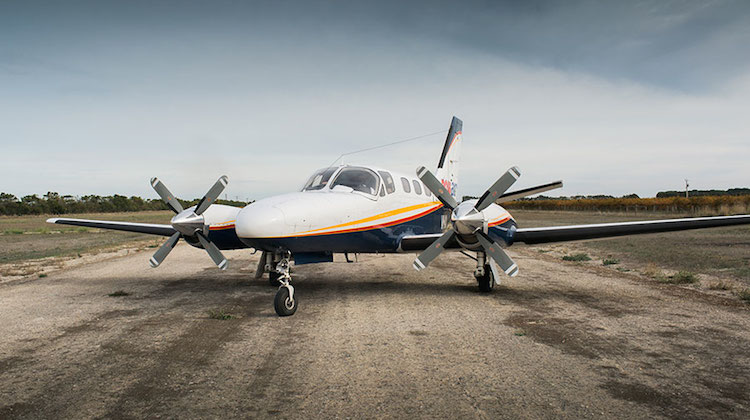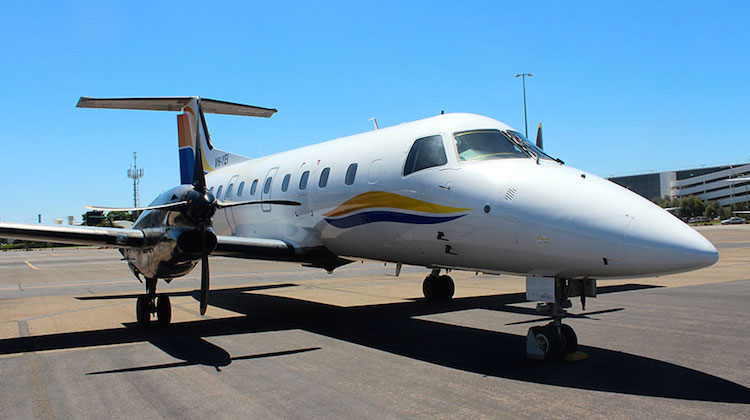
Adelaide-based charter operator Rossair has entered into voluntary administration some 13 months after a crash involving one of its aircraft killed its chief pilot and two others on board.
The company, which has been in operation for more than 50 years, said in a statement on Wednesday the decision to appoint administrators was made after the businesses had been faced with several significant, external challenges.
“After more than 12 months faced with extreme adversities stemming from the tragic Rossair airline accident in the South Australian Riverland, the businesses of AE Charter Pty Ltd (including Rossair Charter Pty Ltd) have appointed Voluntary Administrators,” the statement said.
Ernst and Young partner Henry Kazar and director Lachlan Abbott have been appointed joint administrators of the company, a Rossair spokesperson said.
On May 30 2017, a Rossair Cessna 441 Conquest II VH-XMJ crashed near Renmark, South Australia while conducting a training flight from Adelaide to South Australia’s Riverland region and return.
The company’s chief pilot Martin Scott, experienced pilot Paul Daw who was undergoing a check flight and a representative from the Civil Aviation Safety Authority (CASA) Stephen Guerin were on board. There were no survivors.
Following the accident, Rossair grounded its fleet of Embraer EMB-120 Brasilias, Beechcraft 1900s and Cessna 441 Conquests in what it described at the time as a “prudent and precautionary measure”.

The Australian Transport Safety Bureau (ATSB) preliminary report published on June 30 2017 said its on-site examination of the wreckage and surrounding ground markings indicated that the aircraft impacted terrain in a very steep, almost vertical, nose‑down attitude, and came to rest facing back towards the departure runway.
The investigation is ongoing, with final report due in the first quarter of calendar 2019.
In September, Rossair teamed up with AusJet Aviation through a joint-venture to resume flying operations in South Australia.
However, Rossair has not been flying its own aircraft since the May 2017 crash.
The Rossair spokesperson said in the statement recent events had “brought high levels of uncertainty and material costs to the group’s operational businesses”.
“These have had, and will continue to have, an adverse impact on the company’s cash flow position,” the spokesperson said.
“During the past 12 months, AE Charter and its stakeholders have done everything possible to provide for a sustainable future for the group but an inability to recommence operations has meant these efforts have not come to fruition at this point in time.”
The spokesperson said “limited, non-flying activities” would continue to be conducted at its Adelaide office as company directors and administrators worked to “put the business on a sustainable footing for the future”.
“The AE Charter Board and management team will assist the administrators where possible to investigate and pursue strategies to retain the value for all stakeholders,” the spokesperson said.
South Australian government to meet Rossair administrators
South Australia Regional Development Minister Tim Whetstone told the ABC the State Government would meet with the administrators to discuss ways to maintain important air links to regional areas.
“It’s not there for the State Government to step in on a commercial airline, a commercial business,” he told ABC Online.
“What the State Government will do is sit down with the administrators and look at ways that we can provide an air service to regional South Australia.
“It’s a valuable air service to South Australia that is needed . . . particularly regional South Australia, being so far from mainstream Adelaide.”
Rossair, which has been around since 1963, is the second regional operator to enter voluntary administration in recent times.
In early June, Jetgo ended all regular public transport (RPT) flights and appointed McLeod and Partners’ Jonathan Paul McLeod and Bill Karageozis as joint administrators.




